WASHINGTON—China’s communist leaders know that they have to do something about China’s deplorable environment because it is limiting opportunities for economic growth, causing mounting health problems, and it “has become one of the leading sources of social unrest throughout the country,” said Elizabeth Economy, C.V. Starr senior fellow and director for Asia Studies, Council on Foreign Relations.
Dr. Economy was invited Oct. 7 to Capitol Hill as a witness for the Congressional-Executive Commission on China (CECC), which questioned China experts on the progress China is making in human rights and the rule of law. Economy’s specialty is China’s environment. She authored “The River Runs Black: The Environmental Challenge to China’s Future” (2004) and co-edited “China Joins the World: Progress and Prospects” (1999).
Co-Chairman of the CECC, Senator Byron Dorgan, introduced the witnesses and put their testimony in a larger context, saying that it is in the interest of the United States as well as Chinese citizens for China’s regime to cease repressing free expression and the rule of law.
“The harassment of whistle blowers and the suppression of criticism and dissent remove internal checks against environmental damage and hurts not only Chinese citizens but has a global impact as well.” Dorgan said that press censorship in China makes possible toxic food and “public health practices that go astray globally.”
Drawing on Communist Party official statistics, Dr. Economy said that environmental pollution and degradation cost the Chinese economy 10 percent of its GDP annually. More than one quarter of the land is “severely degraded or desertified,” she said. The worsening air and water pollution may explain the dramatic increase in cancer victims—roughly 20 percent since 2005. “Over half of the country’s population drinks contaminated water on a daily basis,” said Dr. Economy.
The number of environmental protests exceeded 50,000 in 2005, according to the minister of Environmental Protection, said Economy. “These protests can range from 100 farmers blocking a road to 30,000 protesting a new chemical factory in Sichuan that would cause miscarriages of young women in the villages,” said Dr. Economy at the hearing.
The Chinese population is alerted by the Internet or other forms of communication to potential health hazards of planned projects, and sometimes is able to halt these going forward. Economy said there were significant protests—up to 10,000 people—in major cities, such as Xiamen, Zhangzhou, and Chengdu, over large chemical and petrochemical plants to be built.
Corruption is a big problem, too. Media have exposed local officials covering up serious pollution problems by pressuring the courts, press, and even hospitals so that these problems do not become known. Additionally, “local officials often divert environmental protection funds,” according to Dr. Economy. She cited an official report which found that “fully half of the environmental funds distributed from Beijing to local officials for environmental protection made its way to projects unrelated to the environment.”
The Communist Party has allowed the emergence of 3,000 environmental non-government organizations (NGOs) for their expertise and to bring transparency to environmental problems. The media too is sometimes allowed to a play a watchdog role to check abuse by local officials. The Supreme People’s Court established a network of courts to handle only cases concerning enforcement of environmental regulations.
However, “China’s leaders fear the potential that the environment might become a lightning rod for a broader push for political reform,” said Dr. Economy. Therefore, these NGOs are subjected to severe restrictions and are closely monitored. Many of China’s prominent environmentalists are being harassed or jailed, such as Wu Lihong, Yu Xiaogang, and Tan Kai, to name three.
In her written testimony, Dr. Economy described nearly schizophrenic behavior by Chinese authorities: “Wu Lihong worked for 16 years to address pollution in Tai Lake, gathering evidence that forced almost two hundred factories to close. In 2005, Beijing honored Wu as one of the country’s environmentalists, but in 2006, one of the local governments Wu had criticized, arrested and jailed him on dubious charges of blackmail and fraud.”
Dr. Economy advised the Commission that unless China can overcome the lack of transparency and the rule of law as well as official corruption that are impeding the enforcement of its environmental laws and regulations, the United States will not be able to rely on China as a responsible partner toward meeting global challenges, such as climate change.
Chairman Byron L. Dorgan (D-ND) presided over this hearing, and was the only senator present. Reps. Chris Smith (R-NJ) and Tim Walz (D-Minn.), both commissioners, attended, and Reps. Mike Honda (D-Calif.) and David Wu (D-Ore.), also commissioners, dropped by for a short time and offered their full support and comments. No commissioners from the executive branch attended this hearing.
The Congressional-Executive Commission on China was established in October 2001 with the legislative mandate to monitor human rights and the development of the rule of law in China. The Commission’s annual report for 2009 was scheduled to be released on Oct. 13. Members consist of nine senators, nine members of the House of Representatives, and five senior administration officials appointed by the president.
Dr. Economy was invited Oct. 7 to Capitol Hill as a witness for the Congressional-Executive Commission on China (CECC), which questioned China experts on the progress China is making in human rights and the rule of law. Economy’s specialty is China’s environment. She authored “The River Runs Black: The Environmental Challenge to China’s Future” (2004) and co-edited “China Joins the World: Progress and Prospects” (1999).
Co-Chairman of the CECC, Senator Byron Dorgan, introduced the witnesses and put their testimony in a larger context, saying that it is in the interest of the United States as well as Chinese citizens for China’s regime to cease repressing free expression and the rule of law.
“The harassment of whistle blowers and the suppression of criticism and dissent remove internal checks against environmental damage and hurts not only Chinese citizens but has a global impact as well.” Dorgan said that press censorship in China makes possible toxic food and “public health practices that go astray globally.”
Drawing on Communist Party official statistics, Dr. Economy said that environmental pollution and degradation cost the Chinese economy 10 percent of its GDP annually. More than one quarter of the land is “severely degraded or desertified,” she said. The worsening air and water pollution may explain the dramatic increase in cancer victims—roughly 20 percent since 2005. “Over half of the country’s population drinks contaminated water on a daily basis,” said Dr. Economy.
The number of environmental protests exceeded 50,000 in 2005, according to the minister of Environmental Protection, said Economy. “These protests can range from 100 farmers blocking a road to 30,000 protesting a new chemical factory in Sichuan that would cause miscarriages of young women in the villages,” said Dr. Economy at the hearing.
The Chinese population is alerted by the Internet or other forms of communication to potential health hazards of planned projects, and sometimes is able to halt these going forward. Economy said there were significant protests—up to 10,000 people—in major cities, such as Xiamen, Zhangzhou, and Chengdu, over large chemical and petrochemical plants to be built.
Corruption is a big problem, too. Media have exposed local officials covering up serious pollution problems by pressuring the courts, press, and even hospitals so that these problems do not become known. Additionally, “local officials often divert environmental protection funds,” according to Dr. Economy. She cited an official report which found that “fully half of the environmental funds distributed from Beijing to local officials for environmental protection made its way to projects unrelated to the environment.”
The Communist Party has allowed the emergence of 3,000 environmental non-government organizations (NGOs) for their expertise and to bring transparency to environmental problems. The media too is sometimes allowed to a play a watchdog role to check abuse by local officials. The Supreme People’s Court established a network of courts to handle only cases concerning enforcement of environmental regulations.
However, “China’s leaders fear the potential that the environment might become a lightning rod for a broader push for political reform,” said Dr. Economy. Therefore, these NGOs are subjected to severe restrictions and are closely monitored. Many of China’s prominent environmentalists are being harassed or jailed, such as Wu Lihong, Yu Xiaogang, and Tan Kai, to name three.
In her written testimony, Dr. Economy described nearly schizophrenic behavior by Chinese authorities: “Wu Lihong worked for 16 years to address pollution in Tai Lake, gathering evidence that forced almost two hundred factories to close. In 2005, Beijing honored Wu as one of the country’s environmentalists, but in 2006, one of the local governments Wu had criticized, arrested and jailed him on dubious charges of blackmail and fraud.”
Dr. Economy advised the Commission that unless China can overcome the lack of transparency and the rule of law as well as official corruption that are impeding the enforcement of its environmental laws and regulations, the United States will not be able to rely on China as a responsible partner toward meeting global challenges, such as climate change.
Chairman Byron L. Dorgan (D-ND) presided over this hearing, and was the only senator present. Reps. Chris Smith (R-NJ) and Tim Walz (D-Minn.), both commissioners, attended, and Reps. Mike Honda (D-Calif.) and David Wu (D-Ore.), also commissioners, dropped by for a short time and offered their full support and comments. No commissioners from the executive branch attended this hearing.
The Congressional-Executive Commission on China was established in October 2001 with the legislative mandate to monitor human rights and the development of the rule of law in China. The Commission’s annual report for 2009 was scheduled to be released on Oct. 13. Members consist of nine senators, nine members of the House of Representatives, and five senior administration officials appointed by the president.
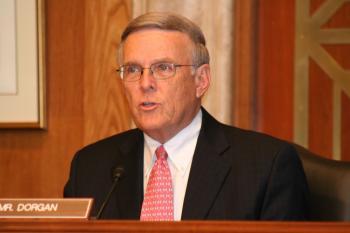
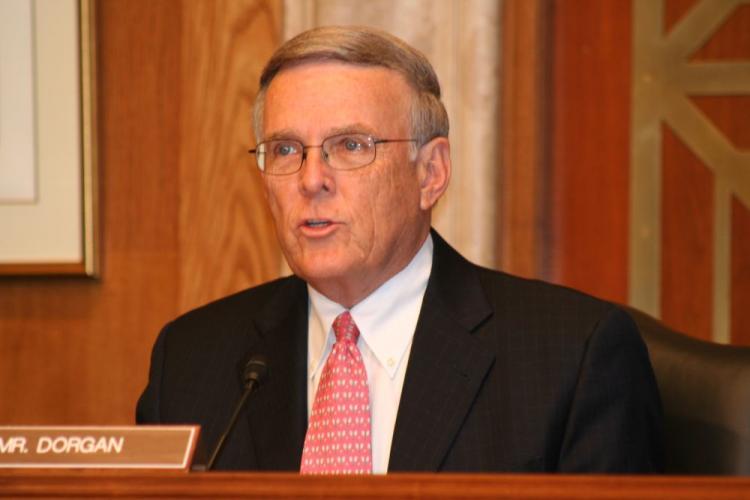
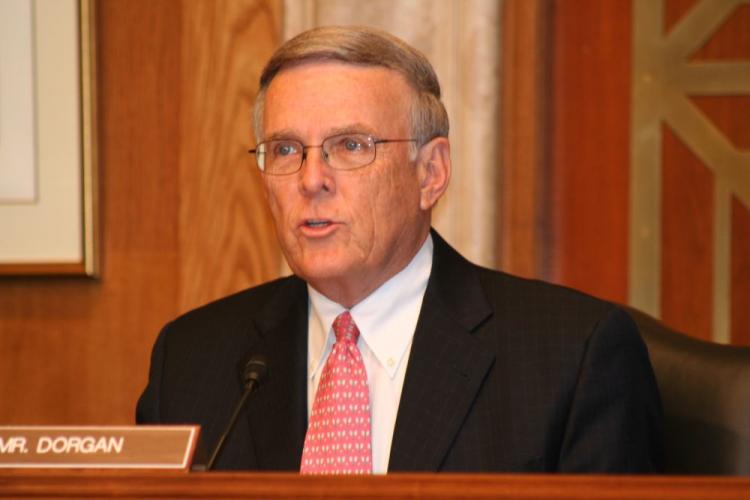
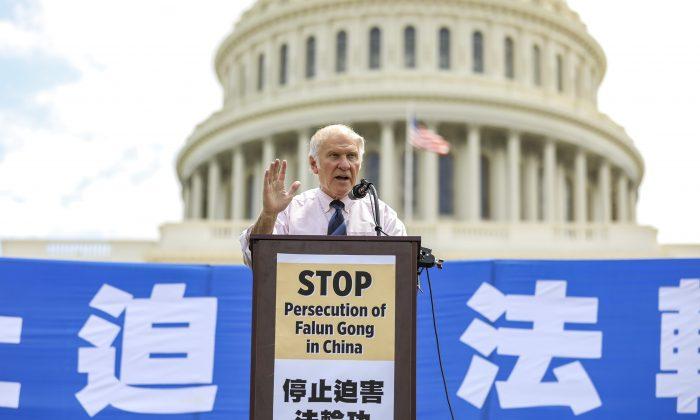
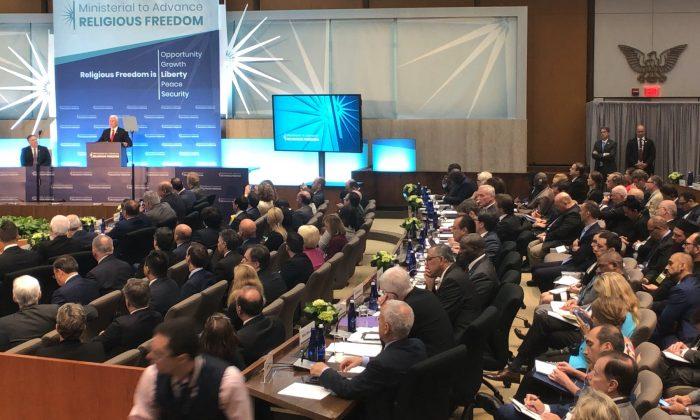
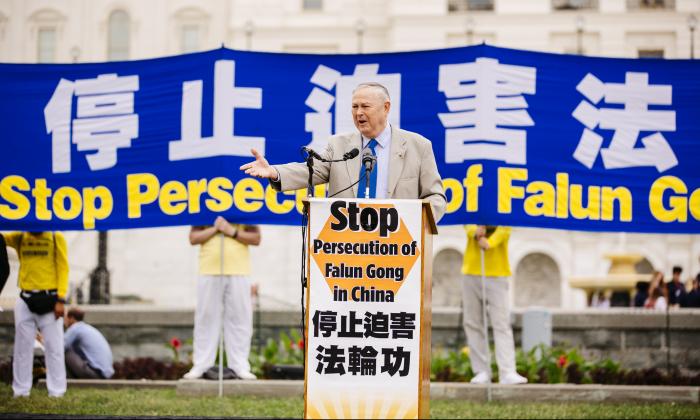
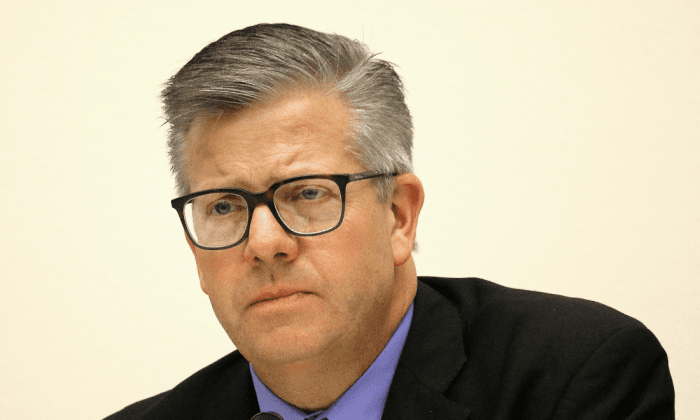
Friends Read Free